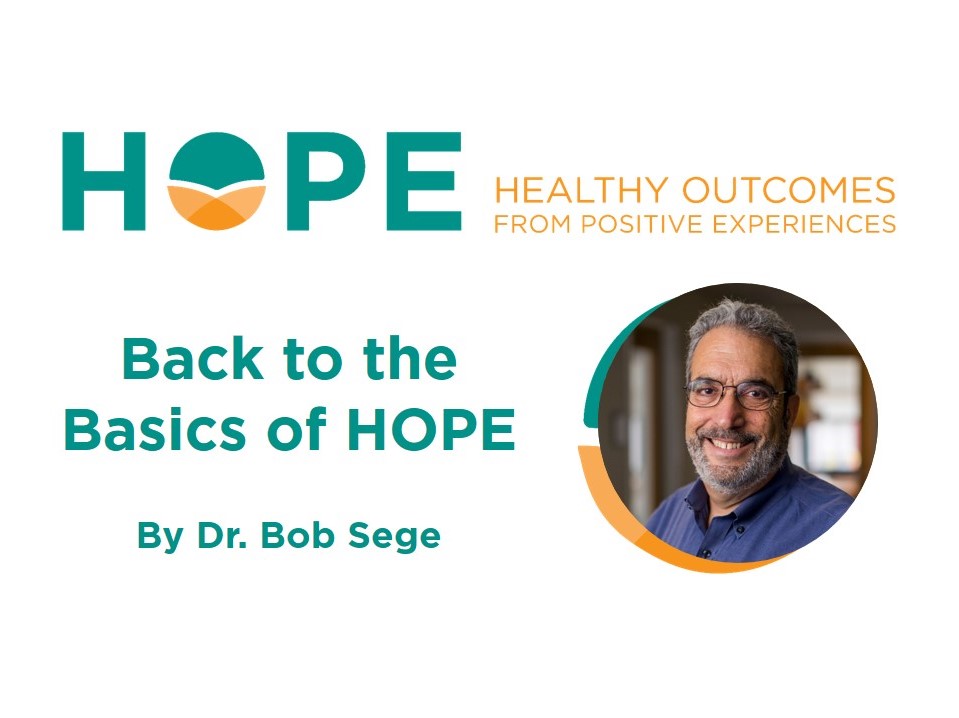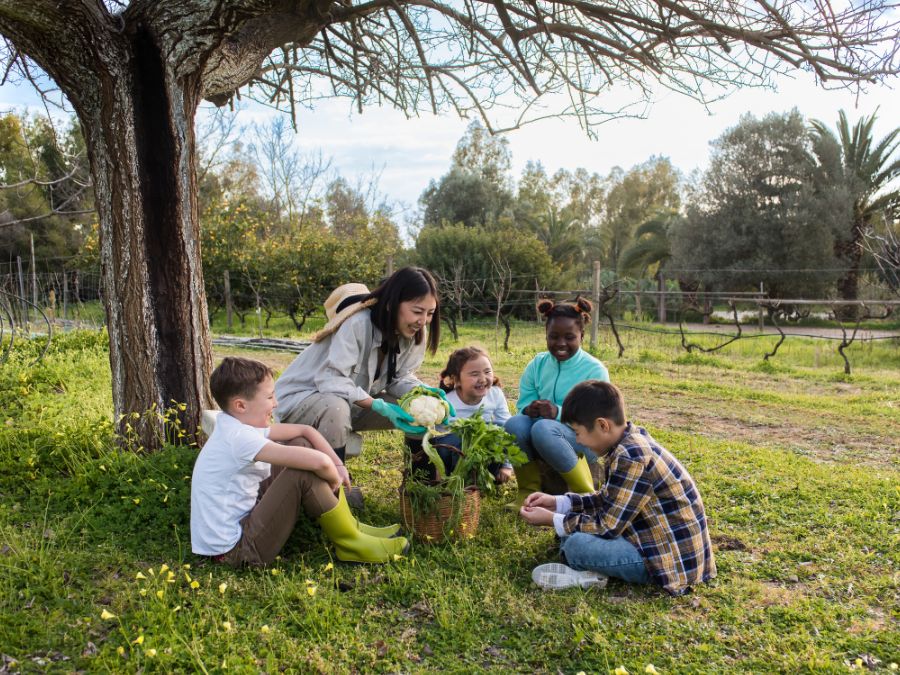
Today’s blog was written on a gray and dreary day, which seems fitting. We are now nearly 8 months into the pandemic, and its effects are wearing us down. Rather than beginning with a catalog of all our troubles, including the dramatic inequities brought to light by the pandemic, I thought I would go back to the basics of HOPE.
Dr. Jeffrey Linkenbach, Director & Chief Research Scientist at The Montana Institute, and a member of the core HOPE National Resource Center team, developed the Science of the Positive, which encourages us to start with “spirit.” After cycling through science, action, and reflection, we return to where we started with spirit.
The spirit of HOPE is simple: children are not products to be graded, sorted, and labeled, and parents are complex human beings who love their children and do everything in their power to care for them. This sounds simple. However, we live in an age where accountability has been translated into systematic evaluation–including children’s physical and developmental progress, parents’ and caretakers’ mental health education and connection, and households’ access to health-related social needs. These evidence-based screens have been widely implemented, and there is growing evidence of their effectiveness in identifying problems and supporting families.
HOPE-informed practice transforms providers from family evaluators to family allies. By taking moments to appreciate, celebrate, and bolster individual and family strengths, HOPE-informed approaches to care can fundamentally transform practice. This mindset shift changes us as providers—we see both the strengths and struggles of the families we serve. These practices can also change the way our patients and clients view their interactions with us, allowing them to see the spirit of care and empathy that motivates our work. Most importantly, HOPE-informed practice set the stage for collaborative problem-solving with families. When parents and families are viewed as complex individuals with strengths—rather than broken and needing to be fixed—providers can recognize families’ expertise in supporting their growing children. HOPE-informed practice shows us that providers should partner with parents, who trust us with insights into their families’ lives, entering into a collaborative relationship with shared goals.
But HOPE goes beyond the individual family, client/patient, and provider relationship. Glaring inequities in society, compounded by historical and current effects of systemic racism, have harmed and/or threatened many families, and these problems need to be addressed at a systems level. Below, I list some systemic issues that require resolution.
Healthcare: Every child needs access to warm, welcoming, and culturally competent healthcare for themselves and their families. As families have lost jobs during the pandemic, problems associated with employer-based health insurance have become even more obvious. I don’t pretend to know the answer, but it is clear that families are most stressed when their incomes disappear, and additional stresses faced by fears of cataclysmic healthcare bills in the midst of a pandemic don’t help.
Paid Family Leave: HOPE focuses on the importance of early relational health, based on the foundational relationships that begin at the moment of birth. A relatively simple state policy change, paid family leave, supports the formation of these relationships. More and more states have adopted paid family leave, using relatively minor changes to the state unemployment system.
Safe and Stable Environments: Children need safe, stable, and equitable environments to live, learn, and play. The pandemic has threatened those environments. Many children are left behind by virtual learning, due to technology gaps (lack of adequate access to computers or internet), because their age and developmental status makes distance learning problematic, or because they have special learning needs. The answers to this problem are complex and involve local factors ranging from the school buildings themselves to the dynamic of the pandemic. Children’s developmental needs for social interaction in a safe environment need to be central to all of the discussions. For pediatricians, the view that children are simply vectors of disease and any small risk of infection must be eliminated, risks ignoring what we know about children’s developmental needs and trajectories.
The pandemic has also threatened living environments. Adding to the stress of unemployment, housing insecurity affects thousands of families—especially in working-class communities of color. Children need safe and stable environments in which to live, and families need policies that prevent large-scale evictions in the midst of a pandemic.
This blog started out commenting on a gray and dreary environment. We are, however, entering the dawn of a new era, as we transform practice. Our team has been repeatedly honored to speak with thousands of frontline providers around the country, working together to incorporate HOPE into their work. At the end of a 45 minute workshop, one participant offered: “It gives me HOPE in the work that we all devote our hearts, time and energy to.”
In the coming weeks, we will be offering more tools to bring HOPE into practice. We are ready to launch the pilot of our new learning management system, which will bring HOPE training to individuals and organizations around the country. Our smartphone photo contest for high school students in the Greater Boston area is up and running; expect to see beautiful images in time for the New Year. Finally, we are working with the American Academy of Pediatrics and Prevent Child Abuse America to better understand the effects of the pandemic on families. The first reports from this project will be published around Thanksgiving. Thank you for joining us on the journey to bring HOPE into practice. Please share your stories of HOPE and inspiration, and take time each day to reflect on the strength and beauty we are seeing, even in these bleak times.


